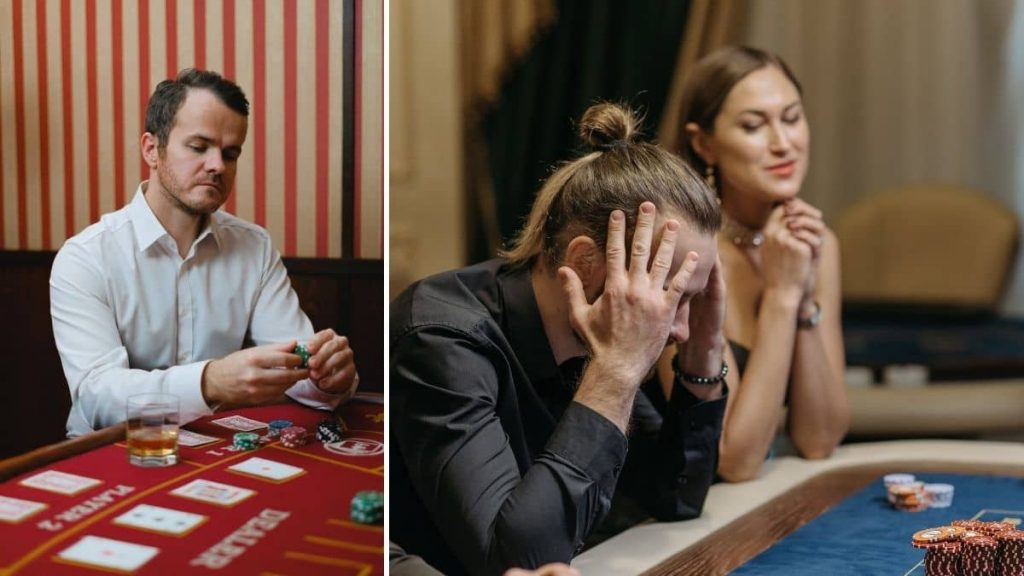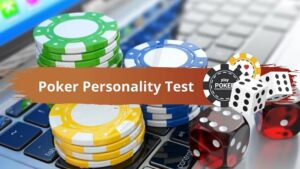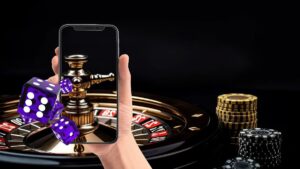As online gambling continuously growing at a fast pace, we also want to raise awareness about the danger of gambling. In addition, we want you to know how bipolar disorder and gambling addiction can affect one’s life.
In this post, we will look at a prevalent mental ailment that many internet gamblers are likely to suffer from. Moreover, we will try to provide a little more background on bipolar disorder as well as how it relates to gambling at top online casino Singapore.
Understanding Bipolar and Gambling Addiction
Addictive behaviors are common among people with bipolar disorder. Oftentimes, they uncontrollably buy goods they do not need as well as engage in frequent and dangerous sex. In addition, a person with bipolar disorder often works long hours.
They are also more likely to be obsessive gamblers. Bipolar people tend to overspend on lottery tickets. In addition, you can find them sitting in front of video poker machines for hours on end and frequently visits casinos or online casino Singapore.

Is gambling a mental illness?
While there are linked indicators to look out for that could suggest that someone has a compulsive need to gamble, gambling addiction is sometimes known as the “hidden sickness”. It is hidden because the outward symptoms causes of gambling addiction are not as obvious as drug or alcohol addictions. Instead, it can be irritability, anxiety, or headaches.
What is bipolar disorder, exactly?
Bipolar disorder is a mental condition that affects a large portion of the world’s population, particularly in the United States. The disorder is characterized by extreme mood swings that can lead to hyperactivity or depression. Since it is “bipolar”, you never know which of the two may occur at any given time.
What’s the connection between bipolar disorder and gambling?
Other symptoms of bipolar disorder are extreme mood swings, being overactive, and the ability to get things done. The manic-depressive disease is another term for this mental condition, which reflects mood swings.
Oftentimes, bipolar disease and gambling addiction occur together, according to researchers. According to one national survey, half of all gambling addicts in the United States also suffer from this mood condition.
Those with bipolar disorder are more than twice the general population of people with gambling addiction according to a Canadian study. Another study indicated that a mental problem preceded gambling addiction in 80 percent of women and 58 percent of men.
What are the symptoms of bipolar disorder?
It is critical to address this condition in its proper term. Oftentimes, self-diagnosing this mental condition is common to people. Thus, they believe they are right. You should read the indications and symptoms if you or a close friend, family, or loved one is having trouble with something. People who have bipolar disorder go through two “episodes”, which are:
- Manic or hypomanic state
- Depressive or depression state
So, what are the signs of gambling addiction and mood swings?
Symptoms of a manic or hypomanic state
During a manic episode, a bipolar person can be overly ecstatic and full of excitement and purpose. A manic or hypomanic state is characterized by the following symptoms:
- Experiencing sudden boosts of energy.Oftentimes, bipolar people are hyper. They have difficulty sleeping at night because they want to do a lot of activities at the same time.
- During a manic episode, it may also cause speech problems.A bipolar person may speak too quickly, thus others may find it hard to understand. Moreover, the thoughts of people with bipolar disorder often outrun their words.
- This manic episode may also lead to obsessive behaviors such as shopping and gambling addiction.Moreover, it may also include anything about spending a large sum of money.
- Apart from speech and physical appearance, bipolar disorder and gambling addiction also affect people’s emotions.They become arrogant, touchy, and are more likely to get into a fight.
- Finally, a person suffering from a manic episode may do something unsafe that could harm themselves or others.A bipolar person may often engage in irrational and violent sex.

Symptoms of depressive or depression state
This is something that a lot of people struggle with in some form. All of a sudden, you’ll have a depressive episode, becoming unhappy, joyless, and exhausted. These are the following symptoms under depressive state:
- People who are experiencing a depressive episode are profoundly depressed. Thus, they believe they are unworthy of anything. In addition, they often feel lonely and have lost all hope.
- When people are sad, they have problems sleeping, much like when they are manic. They may sleep for large amounts of time. On the other hand, they may also sleep only for an hour and remain completely awake the whole time.
- People who are depressed have low energy and are constantly tired. A bipolar person often has no joy in life and is unable to communicate feelings such as happiness. During a depressive state, everything appears to be grey and unimportant to them.
- Furthermore, the depressed episodes of a bipolar person can lead to dangerous and ominous ideas about death. They may also have suicidal thoughts.
Does gambling cause depression or bipolar disorder?
We briefly mentioned gambling earlier, and we have to be honest here. Because there is no definitive evidence that bipolar disorder causes compulsive gambling. However, because there are manic and depressed phases in this mental condition. Whatever the person is going through could potentially stimulate compulsive behavior, and this can include gambling. Furthermore, gambling can have various effects on persons with such disorders:
- When people are depressed, they generally look for something to distract them. So, they can feel better. This can include things like binge eating, watching movies, and compulsive gambling. Gambling can be used to self-medicate depression and bring relief, according to experts.
- The same is true when you’re having a manic episode. Because you have more energy and make impulsive decisions, you will engage in gambling activities.
- As we mentioned earlier, excessive gambling is not usually linked to the episodes you may experience when you have a bipolar condition. A major life event or Obsessive-Compulsive Disorder can also trigger gambling addiction. To escape reality after the death of a loved one or the loss of a job, many people turn to drinking or gambling.

Online Gambling, Bipolar, and Gambling Addiction
Online gambling, in particular, can provide easy access to a person with bipolar disorder or any other disorder. In addition, gambling online also brings them one step closer to addiction. Individuals with mental illnesses may be readily persuaded and driven to obsessive behaviors as contemporary technological advances. Thus, people become more ‘tied up to their phones and computers. Good thing that top online casinos in Singapore recognize the bipolar disorder and gambling addiction. Thus, they are advocates of responsible gambling. When gambling online, you can take advantage to the self-exclusion and betting limit programs they offer.
Bipolar Disorder is classified into several categories.
The bipolar disease can also manifest itself in a variety of ways. According to one report, there are four categories of bipolar disorder. Moreover, all of these conditions have similar symptoms. We will go over each one briefly below:
Bipolar I Disorder
These are manic episodes that can last anywhere from one to seven days. Because of the severity of the symptoms, a person may need hospital care immediately. The individual in distress may be suffering from both depression and manic episodes at the same time. They can continue longer in this situation. Thus, the recovery may take longer and requires more medical attention.
Bipolar II Disorder
This type is distinct from the previous category. A Bipolar II disorder is characterized by a high number of depressed and hypomanic episodes. This could be harmful. Because these depressive episodes can lead to aggressive behavior as well as suicidal thoughts and behaviors. Moreover, depression can last for a long time depending on the person.
Cyclothymic Disorder (Cyclothymia)
Both children and adolescents, as well as adults, can experience this stage. When you have cyclothymia, you go through a cycle of hypomanic and depressive episodes that can last up to two years or longer. Contrary to our expectations, you can’t address the symptoms of the episodes we mentioned earlier. This is why it is difficult to identify this disease.
Undetermined or Related to Bipolar Disorder
When none of the symptoms listed match any of the categories, then it is classified as undetermined or related. You can’t tell how long the episodes last. At the same time, you don’t know how often they repeat. Moreover, you can’t tell which one is most prevalent. It is hypomania or depression?
Treatment and recovery of bipolar disorder and gambling addiction
Are you suffering from a gambling addiction, bipolar disorder, or a mix of the two? Rest assured that recovery is achievable. Your first step is to find an understanding and experienced mental health provider. Then, you will undergo an evaluation. Here, you will be discussing your experiences and symptoms with your doctor. Afterward, the clinician will provide you with some therapy recommendations that are perfect for you and your circumstances.
Bipolar Disorder and Gambling FAQs:
What impact does gambling have on your mental health?
There is evidence that there is a clear connection between gambling and poor mental health. Thus, people who have gambling issue are twice as likely to be depressed than does who don’t have a gambling problem. Furthermore, they are at a far higher risk of experiencing psychological distress.
Is it possible that gambling is a symptom of bipolar disorder?
Compulsive gamblers are more likely to suffer from substance addictions, personality disorders, depression, or anxiety. Obsessive gambling is sometimes linked to bipolar illness, OCD, and ADHD, too.
Why does a person with bipolar engage in gambling?
When persons with bipolar disorder self-medicate with gambling, they may be tapping into a biological process. So, they can relieve their hyperactivity or depression.
What happens to your brain when you gamble?
According to studies, the release of dopamine while gambling happens in brain areas. It can be compared to those dopamine activated by the use of illegal drugs. Among problem gamblers, losing often triggers the desire to keep playing rather than the disappointment that may lead to quitting. This behavior is known as chasing your losses.





